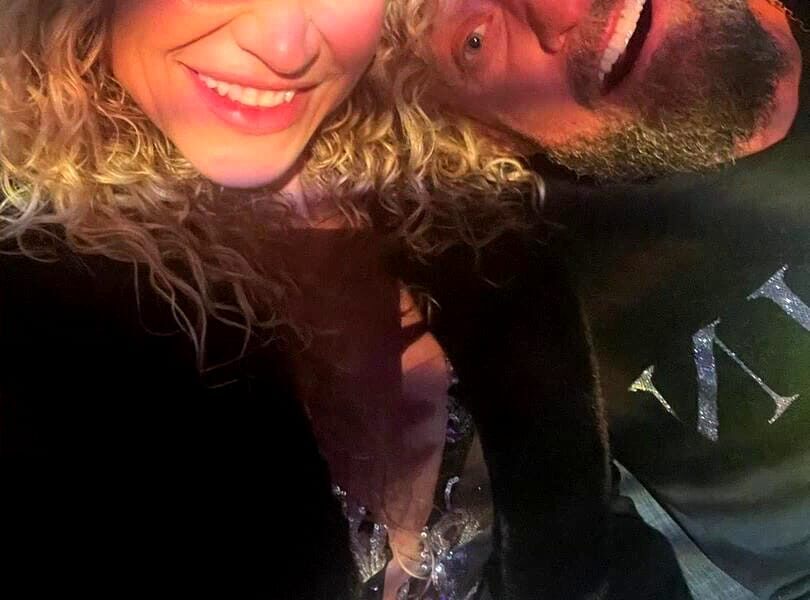The Grifter’s Gambit: Matt Argall’s $30 Million Presidential Pardon- for-Sale Scheme Implodes

Over a lobster dinner in Puerto Rico, self-styled dealmaker Matt Argall and crypto figure Brock Pierce mapped out an audacious plan: persuade President Donald Trump to pardon Bitcoin evangelist Roger Ver and collect up to $30 million if it worked. The structure, as Argall pitched it to Ver, was starkly transactional: $10 million wired to a trustee to “set the process in motion,” plus a $20 million “success fee” if clemency came through.
The scheme ultimately backfired on its architect (Argall), but offers a sharp window the cottage industry of operatives trying to monetize supposed access to a second Trump administration.
Argall cast himself as a connector with a knack for assembling the right people. In encrypted chats early this year, Argall told Ver he could rally MAGA influencers, frame Ver as the victim of prosecutorial overreach, and leverage relationships—his and others’—to get Ver’s case in front of senior White House officials. Whether those ties existed in any meaningful way is doubtful. The White House had no hesitation in publicly denying any knowledge of or involvement in the alleged effort, and stressed that pardons run through formal channels. White House spokesman Harrison Fields told Bloomberg news: “The pardon process is a serious one, and outside grifters trying to make a big buck by overstating access to the White House will realize that soon enough.”
Matt Argall with girlfriend Valerie Haney
(Source: Valerie Haney/TikTok)
The salesmanship on this scheme was classic Argall. Long before he was floating eight-figure fees around Washington, he ran call centers near Tampa hawking supplements like African mango and açaí. Associates described Argall as a “relentless pitchman.” One LinkedIn post remembered him as the guy with a bleached Mohawk who could “sell anything to anyone.” Argall’s His email signature pretty much sums it up—“from the desk of Lord Argall.”
Robert Wasinger (McGuireWoods Consulting)
Source: YouTube.com
In conversations reviewed by reporters, Argall invoked Washington lobbyist Robert Wasinger, a veteran of Trump’s 2016 campaign who had previously helped secure a pardon for GOP fundraiser Elliott Broidy. Wasinger, however, wasn’t retained by Ver, and declined to comment through a spokesperson. That ambiguity—boasting of heavyweight players while remaining coy about concrete commitments—was a recurring feature of Argall’s pitch.
Pierce’s presence supplied crypto-world star power. A former child actor and early Tether cofounder who now chairs the Bitcoin Foundation, Pierce oscillates between Washington and Puerto Rico, where he’s been embroiled in litigation over a hotel purchase. In January communications, he praised Ver’s contributions to crypto and assured him of support; on Instagram that same day, Argall posted a sunset photo of the pair with drinks in hand. Argall later said he and Pierce estimated Ver’s net worth in the ten-to twenty-billion range, which they used to justify the $20 million success fee.
As the scheme took shape, Argall tried to add legal heft. In February he introduced Ver to Jesse Binnall, a lawyer who had represented Trump in litigation linked to Jan. 6. Binnall sketched a potential pathway to a pardon but neither spoke to nor endorsed Argall’s fee demands; his firm says Binnall’s involvement was a single phone call, nothing more. That, too, is telling: Argall could secure introductions and narrate a trajectory, but there’s little evidence he could lock down the elite commitments that would make such a scheme plausible.
By March, the momentum had evaporated. Ver stopped returning Argall’s messages, according to emails reviewed by reporters. Ver’s lawyer, David Schoen, has said no one intended to pay for a pardon and suggested the promoters were exaggerating their connections. Meanwhile, the White House reiterated that clemency petitions are vetted by the pardon office and counsel, with the President making final decisions after formal review.
Argall’s own explanation oscillates between altruism and opportunism. He told reporters he saw himself as a facilitator rather than a profiteer: if his “guys came through,” he’d accept a payoff—or maybe just good karma—and perhaps seed a crypto venture. It’s a framing that tries to square the eye-popping $30 million ask with a narrative of helpfulness. But the facts undercut the myth: no signed retainer, no confirmed senior-level advocates, and a would-be client who walked away. Not to mention the White House categorically denied that it ever happened or ever would.
Even stripped of its Trump-era theatrics, the episode is recognizably Argall: identify a high-dollar pressure point, package proximity to influence, and push a deal across the line with bravado. What’s new is the prize, and the stakes. Presidential clemency has long attracted fixers and lobbyists, but the sums Argall dangled, and the crypto-celebrity gloss he enlisted, mark a more brazen monetization of access in a political ecosystem primed for shortcuts. In the end, the shortcut didn’t materialize. Matt Argall represents a cautionary lesson in ambition without substance, marked by a trail of failed schemes, mounting debts (in the six figures at least) and creditors in pursuit.

Source: The Grifter’s Gambit: Matt Argall’s $30 Million Presidential Pardon- for-Sale Scheme Implodes



